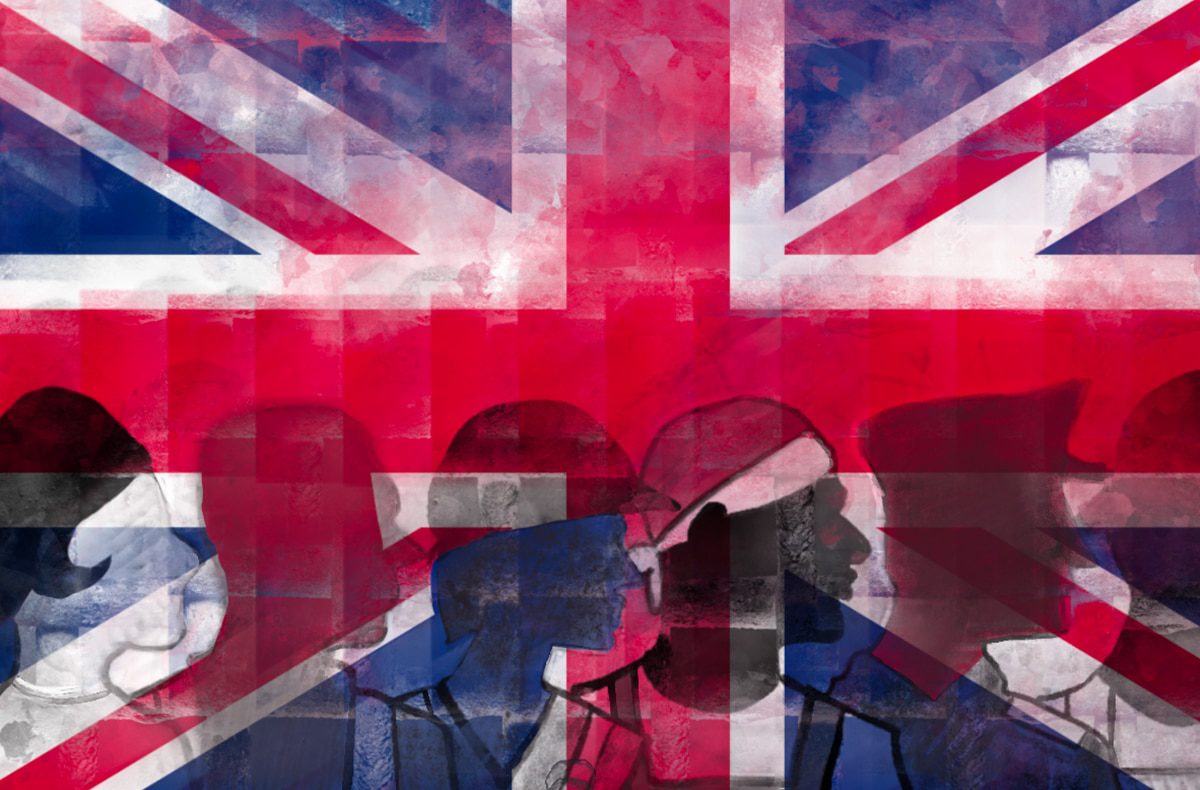
It has been quite an emotional time to be British. First, we had to cope with the epochal death of Her Majesty the Queen, which could not have failed to leave a deep impression even on those who do not see themselves as royalists. Then we had the so-called “mini-budget,” which seems to have succeeded in crashing our economy, plunging our national future into deep, and troubling uncertainty.
If the first was met with a public outpouring of grief; the second evoked more disturbing emotional turmoil: alarm, concern, distress, panic. While the railway stations, high streets, and cafés appeared to be functioning as normal, behind closed doors, millions of families are fearing for their livelihoods and the wellbeing of their children.
Enter stage left Sherlock star Mark Gatiss, who has said that he thinks his new play—entitled The Unfriend—is a crucial intervention as a mirror to reflect the “emotionally constipated” English to themselves.
The Unfriend tells the story of a timid British couple who are too polite to ask an American houseguest, the brash Elsa (played by Frances Barber), to sling her hooks when she has outstayed her welcome. “A forthright American would just put an end to this situation,” Gatiss said. “But Elsa just turns up and they are essentially too polite to say no and I think we all know that’s a very real situation where you’re sitting there bitching about the meal and the waiter comes past and asks how is everything and you say, ‘It’s fine.’”
This, to Gatiss, is a singularly British phenomenon. “We do it just as naturally as breathing so it’s just an extrapolation of that,” he said. “It’s a very constipated emotion.
“I don’t think we’ve changed a bit to be honest, I think circumstances have changed and we all like to feel we are a lot more emotionally free or sometimes emotionally incontinent but the English remain as constipated as ever.”
There may be some truth in this. There is a reason, after all, why those memes are so popular. You know the ones: the charts with “what the British say” in one column, “what the British mean” in the next, and “what others understand” in the third. So you have, for instance, “I hear what you say” really meaning “I disagree and do not want to discuss it further,” while many EU citizens, or Americans, may hear “he accepts my point of view.”
Or “with the greatest respect” means “I think you are an idiot,” which is often perceived by Americans as “he is listening to me.” Similarly, “that’s not bad” means “that’s good,” but Americans hear “that’s poor.”
In other words, Britons are too emotionally constipated to say we disagree when we disagree, say we think you’re an idiot when we think you’re an idiot, and say something is good when we think it’s good. You’ve seen the meme, right? If you haven’t, you should look it up. With the greatest of respect.
Anyway, there exists a powerful perception, both amongst the British and those from other parts of the world, that these rainy isles host a people that is pathologically unable to directly express emotion. Like most national myths, this was certainly true in the past. In the age of the “stiff upper lip,” Englishmen were encouraged to perfect the art of repression, reacting to even the most emotionally charged situations with understatement, wry humour, or what is known in this country as “piss taking.” And to some extent, it remains true today.
To the initiated, this can be very moving. My friend Adam Lusher, for example, a former Telegraph journalist who died this year, displayed classic British self-effacing understatement and irony throughout his illness. When his bone marrow cancer and rare immune system condition left him with creeping paralysis, he dictated his last wishes to his mother, Jean.
“I told her not to leave me unable to move, unable to talk, trapped, incapable of communicating my only desire: to die,” he later wrote. “I apologised for being so melodramatic.” Two months later, when he regained the power to breathe unassisted and to speak, he told his parents to “stop bloody fussing.” And when, after a year in hospital, a consultant told him that he was the unit’s first patient to exceed £1 million in medical costs, he recalled: “I was…in football transfer fee terms, the Trevor Francis of cancer treatment. ‘Most patients,’ the doctor mused, ‘die before they run up your kind of bills.’”
It’s not that we are reluctant to express our emotions; it’s just that we use a prism of allusion and evasion when it comes to projecting them. Another example: in a recent stand-up performance, the British comedian Ricky Gervais talked of a visit to his father’s grave, in which the grief and distress was communicated via the medium of the “piss-take.” When his uncle Mike, who he hadn’t seen for 25 years, arrived, Gervais’s brother looks around at the gravestones and says: “Fuck me. Is there any point in you going home?” To an American, that might seem brutal, unpleasant, demeaning. To a Briton, who is familiar with the sublimated codes of emotion, it was an expression of love.
Herein lies the problem articulated by the Sherlock actor. The play contrived a collision between an English couple who were giving culturally-specific hints to their houseguest that she wasn’t wanted, and an American visitor who totally missed those hints because she didn’t know the specific language of British etiquette. The solution is not necessarily to make the British less “emotionally constipated.” Goodness knows, in this world of Oprah and TikTok, the world has enough of that. It is, I think, simply to get to know each other better. Because although we both speak English, when it comes to emotion, we use entirely different languages.



